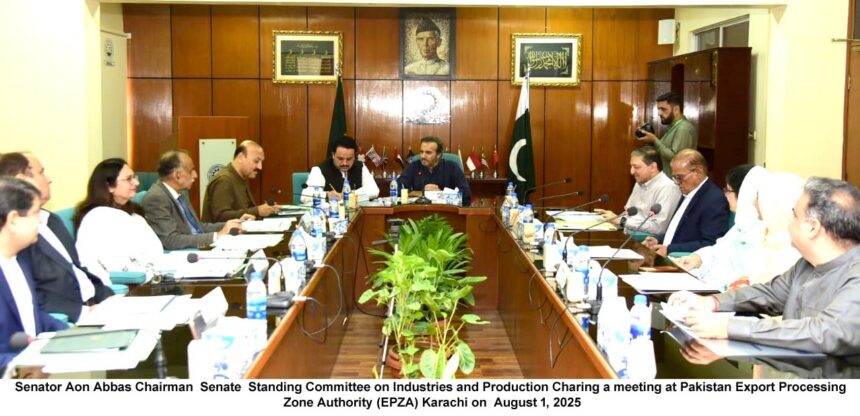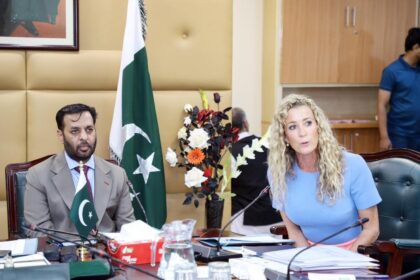A delegation from Pakistan’s Senate Standing Committee on Industries and Production has visited the Export Processing Zones Authority (EPZA) headquarters in Karachi to address policy and operational challenges affecting industrial growth and investor confidence. Key concerns discussed included inconsistent taxation policies, infrastructure shortcomings, a surge in legal disputes, and delays in administrative reforms, all of which are hindering the productivity and attractiveness of Pakistan’s export processing zones (EPZs).
The committee, led by Senator Aon Abbas and comprising several other senators, held in-depth talks with EPZA officials on the obstacles troubling the organization. EPZA Chairman AD Khwaja briefed the delegation about the confusion and instability created by unpredictable taxation rules, warning that these issues are undermining incentives for both local and foreign investors in the zones. The parliamentary group acknowledged that uncertainty in tax policy is one of the biggest barriers to new investment and called for urgent collaboration between EPZA, the Federal Board of Revenue, and the Ministry of Finance to ensure clear and stable tax structures for businesses in the EPZs.
During the visit, the committee also learned about a range of operational and legal challenges. These included limited land for further expansion, outdated infrastructure, a lack of essential facilities like cargo scanning, and bureaucratic delays in transferring administrative control of the Sialkot and Gujranwala zones. Officials raised alarms about frequent fire incidents, slow progress in digitalizing business processes, and the absence of qualified professionals to support zone operations.
A growing backlog of legal disputes was also discussed, with officials noting that 99 cases related to non-performing or closed units are pending across various forums, including 18 lawsuits filed directly by investors. Recent changes in the judicial system, resulting from the Sindh Civil Courts Amendment Act, have shifted several cases from the High Court to district courts, which could further delay case resolutions.
In response, the committee instructed EPZA to provide a detailed report on all litigation related to land allotments and stressed the need for comprehensive records to prevent future legal complications. Senator Aon Abbas praised the efforts of the EPZA and assured that the Senate Committee would offer full legislative and administrative support to revitalize the export processing zones and enhance Pakistan’s appeal as a destination for sustainable industrial investment.











